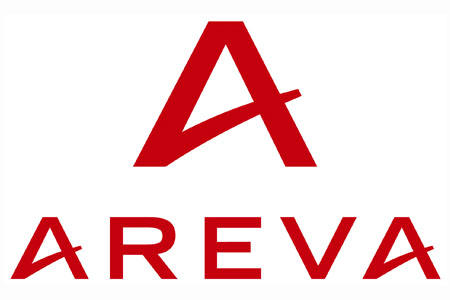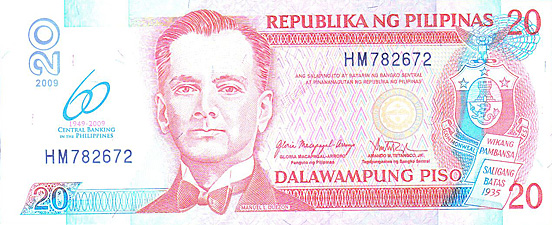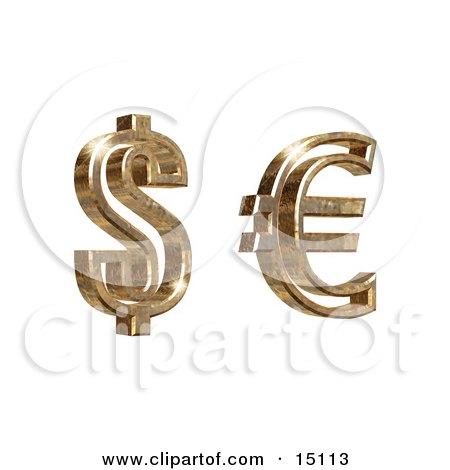A proposal to sell the combined debt of the euro-region has become a flashpoint between the new European leaders running out of options to stabilize the bond market.
With a European Union summit next week in Brussels, officials in Italy, Luxembourg, Belgium and Greece, said the proposal should be explored, leading to resistance from Germany, France and Austria. Economists and analysts at Goldman Sachs Group Inc., Morgan Stanley and HSBC Holdings Plc said it would end the debt crisis of the euro-region.
The plan would create a European Agency for the debt to sell bonds to finance up to 50 percent of EU member loans, up to 100 percent for countries unable to attract investors. Opponents say the proposal would raise interest rates for the stronger nations. The weighted average cost of borrowing for five years for the 16-nation euro-region was 3.05 percent yesterday, up from 1.95 percent on German debt.
"It's very important that negotiations continue on the path of a type common bond and a more centralized fiscal policy," said Steven Major, global head of fixed income research at London-based HSBC. "We can not go on with the ECB, doing the heavy work. We need a more sustainable solution."
Euro bonus venture may be the first time a country has issued debt on behalf of another. In 1989, the so-called Brady bonds were issued by nations like Colombia, Brazil and Venezuela, backed by the U.S. government. The bonds are named after former Treasury Secretary Nicholas Brady, who helped create the program.
Credit Agricole
The European Financial Stability Fund, the rescue fund of 440 billion set by the EU following the rescue of Greece, plans to sell bonds in January to pay for aid to Ireland. While supported by most of the same nations that were involved in a bond in euros, has attracted a AAA rating through a series of credit enhancements and are therefore likely to attract the return of a bond in euros according to analysts at Credit Agricole Corporate and Investment Bank.
Politicians are presenting ideas to address the fiscal crisis of the euro-region after the European Central Bank was forced to increase its purchases of government bonds when a rescue plan last month the Irish could not defend markets in the region of bonds to investors betting on a breakup of the euro.
Ireland bonds fell after the nation Nov. 21, said he had demanded a ransom, with the 10-year yield hit a record 680 basis points more than benchmark German dams on 30 November. Yields have declined since the ECB stepped up the purchase of bonds from Ireland, Portugal and Greece on 1 December, reducing the spread from Ireland and Germany to 503 basis points yesterday.
"Intellectually attractive"
Luxembourg Prime Minister Jean-Claude Juncker and Italian Finance Minister Giulio Tremonti, presented a plan for the joint sale of bonds in a commentary in the Financial Times on December 6, increasing the current debate. The idea is intellectually appealing, "said EU Economic and Monetary Affairs, Olli Rehn, the same day, while the Greek Prime Minister George Papandreou, said it was time to" seriously discuss "it.
Juncker, who chairs meetings of finance ministers of the euro group, criticized the German opposition, which led to a replica of a key ally of German Chancellor Angela Merkel.
Germany rejected his proposal for euro area bonds too fast and he was "simple" thinking on the subject, Juncker said on December 8, "Die Zeit reported, citing an interview. Germany is working on European issues "so unEuropean" and the bond proposal was dismissed before Germany had handled the German newspaper quoted him as saying.
The Debate
Michael Meister, the largest finance and economics spokesman for Merkel's Christian Democratic bloc, said in an interview that day.
"We can not put anything else on the table," Meister said in an interview. Juncker and Tremonti, "we can certainly say what they want. You can go ahead with bond set if they want," he said.
The objections can not be definitive, "said Major. Merkel opposed bilateral loans to Greece for the same reasons, before joining the euro-region countries and the International Monetary Fund in the provision of € 110 000 000 000 of loans to the indebted nation. Merkel also supports a change in the European Union treaty that allows the creation of a mechanism of permanent crisis.
Merkel's position is "a negotiating position," said Major. "The worst scenario would be more expensive for Germany" that the common bond, he said.
Euro falls
The euro fell against most of their counterparts of today and yields on government bonds jumped Spanish and Italian as French and German leaders said they are against increasing the EU rescue fund of 440 million euros and refused to set bond euro area.
"Common ties that make governments less accountable, when we want to do otherwise," said French President Nicolas Sarkozy told reporters after meeting with Merkel today in the southern German city of Freiburg.
The creation of common bonds or bills for the euro area would contribute to ending the fiscal crisis in the region by strengthening the liquidity of the market, according to Sander Schol, a London-based director of the Association for Financial Markets in Europe.
Prime AFME European Dealers Association wrote a research paper of the European Parliament on the possibility of a common European issue. Considered "smaller liquidity premium, the most effective coverage and the elimination of market-making obligation would lead to lower interest rates," said the note.
"Sharing optimal risk
These bonds could be the "best rate of distribution of risks," said Goldman Sachs strategist Francesco Garzarelli rate economist and Natacha Valla yesterday. Designed correctly, a bonus program participation would create a financial incentive for fiscal prudence and reduce moral hazard, Arnaud Mares, executive director of Morgan Stanley and former senior vice president at Moody's Investors Service, said on 6 December.
Forcing the theory is unlikely to bring the plan to fruition in the short term, said Michael Leister, a fixed-income analyst at WestLB AG in Dusseldorf.
"In Germany or France would not be attractive, since it would end up paying a higher yield," he said. "This is not a concept that can sell to the German electorate at the moment, and probably the same in Austria and France."
With a European Union summit next week in Brussels, officials in Italy, Luxembourg, Belgium and Greece, said the proposal should be explored, leading to resistance from Germany, France and Austria. Economists and analysts at Goldman Sachs Group Inc., Morgan Stanley and HSBC Holdings Plc said it would end the debt crisis of the euro-region.
The plan would create a European Agency for the debt to sell bonds to finance up to 50 percent of EU member loans, up to 100 percent for countries unable to attract investors. Opponents say the proposal would raise interest rates for the stronger nations. The weighted average cost of borrowing for five years for the 16-nation euro-region was 3.05 percent yesterday, up from 1.95 percent on German debt.
"It's very important that negotiations continue on the path of a type common bond and a more centralized fiscal policy," said Steven Major, global head of fixed income research at London-based HSBC. "We can not go on with the ECB, doing the heavy work. We need a more sustainable solution."
Euro bonus venture may be the first time a country has issued debt on behalf of another. In 1989, the so-called Brady bonds were issued by nations like Colombia, Brazil and Venezuela, backed by the U.S. government. The bonds are named after former Treasury Secretary Nicholas Brady, who helped create the program.
Credit Agricole
The European Financial Stability Fund, the rescue fund of 440 billion set by the EU following the rescue of Greece, plans to sell bonds in January to pay for aid to Ireland. While supported by most of the same nations that were involved in a bond in euros, has attracted a AAA rating through a series of credit enhancements and are therefore likely to attract the return of a bond in euros according to analysts at Credit Agricole Corporate and Investment Bank.
Politicians are presenting ideas to address the fiscal crisis of the euro-region after the European Central Bank was forced to increase its purchases of government bonds when a rescue plan last month the Irish could not defend markets in the region of bonds to investors betting on a breakup of the euro.
Ireland bonds fell after the nation Nov. 21, said he had demanded a ransom, with the 10-year yield hit a record 680 basis points more than benchmark German dams on 30 November. Yields have declined since the ECB stepped up the purchase of bonds from Ireland, Portugal and Greece on 1 December, reducing the spread from Ireland and Germany to 503 basis points yesterday.
"Intellectually attractive"
Luxembourg Prime Minister Jean-Claude Juncker and Italian Finance Minister Giulio Tremonti, presented a plan for the joint sale of bonds in a commentary in the Financial Times on December 6, increasing the current debate. The idea is intellectually appealing, "said EU Economic and Monetary Affairs, Olli Rehn, the same day, while the Greek Prime Minister George Papandreou, said it was time to" seriously discuss "it.
Juncker, who chairs meetings of finance ministers of the euro group, criticized the German opposition, which led to a replica of a key ally of German Chancellor Angela Merkel.
Germany rejected his proposal for euro area bonds too fast and he was "simple" thinking on the subject, Juncker said on December 8, "Die Zeit reported, citing an interview. Germany is working on European issues "so unEuropean" and the bond proposal was dismissed before Germany had handled the German newspaper quoted him as saying.
The Debate
Michael Meister, the largest finance and economics spokesman for Merkel's Christian Democratic bloc, said in an interview that day.
"We can not put anything else on the table," Meister said in an interview. Juncker and Tremonti, "we can certainly say what they want. You can go ahead with bond set if they want," he said.
The objections can not be definitive, "said Major. Merkel opposed bilateral loans to Greece for the same reasons, before joining the euro-region countries and the International Monetary Fund in the provision of € 110 000 000 000 of loans to the indebted nation. Merkel also supports a change in the European Union treaty that allows the creation of a mechanism of permanent crisis.
Merkel's position is "a negotiating position," said Major. "The worst scenario would be more expensive for Germany" that the common bond, he said.
Euro falls
The euro fell against most of their counterparts of today and yields on government bonds jumped Spanish and Italian as French and German leaders said they are against increasing the EU rescue fund of 440 million euros and refused to set bond euro area.
"Common ties that make governments less accountable, when we want to do otherwise," said French President Nicolas Sarkozy told reporters after meeting with Merkel today in the southern German city of Freiburg.
The creation of common bonds or bills for the euro area would contribute to ending the fiscal crisis in the region by strengthening the liquidity of the market, according to Sander Schol, a London-based director of the Association for Financial Markets in Europe.
Prime AFME European Dealers Association wrote a research paper of the European Parliament on the possibility of a common European issue. Considered "smaller liquidity premium, the most effective coverage and the elimination of market-making obligation would lead to lower interest rates," said the note.
"Sharing optimal risk
These bonds could be the "best rate of distribution of risks," said Goldman Sachs strategist Francesco Garzarelli rate economist and Natacha Valla yesterday. Designed correctly, a bonus program participation would create a financial incentive for fiscal prudence and reduce moral hazard, Arnaud Mares, executive director of Morgan Stanley and former senior vice president at Moody's Investors Service, said on 6 December.
Forcing the theory is unlikely to bring the plan to fruition in the short term, said Michael Leister, a fixed-income analyst at WestLB AG in Dusseldorf.
"In Germany or France would not be attractive, since it would end up paying a higher yield," he said. "This is not a concept that can sell to the German electorate at the moment, and probably the same in Austria and France."







